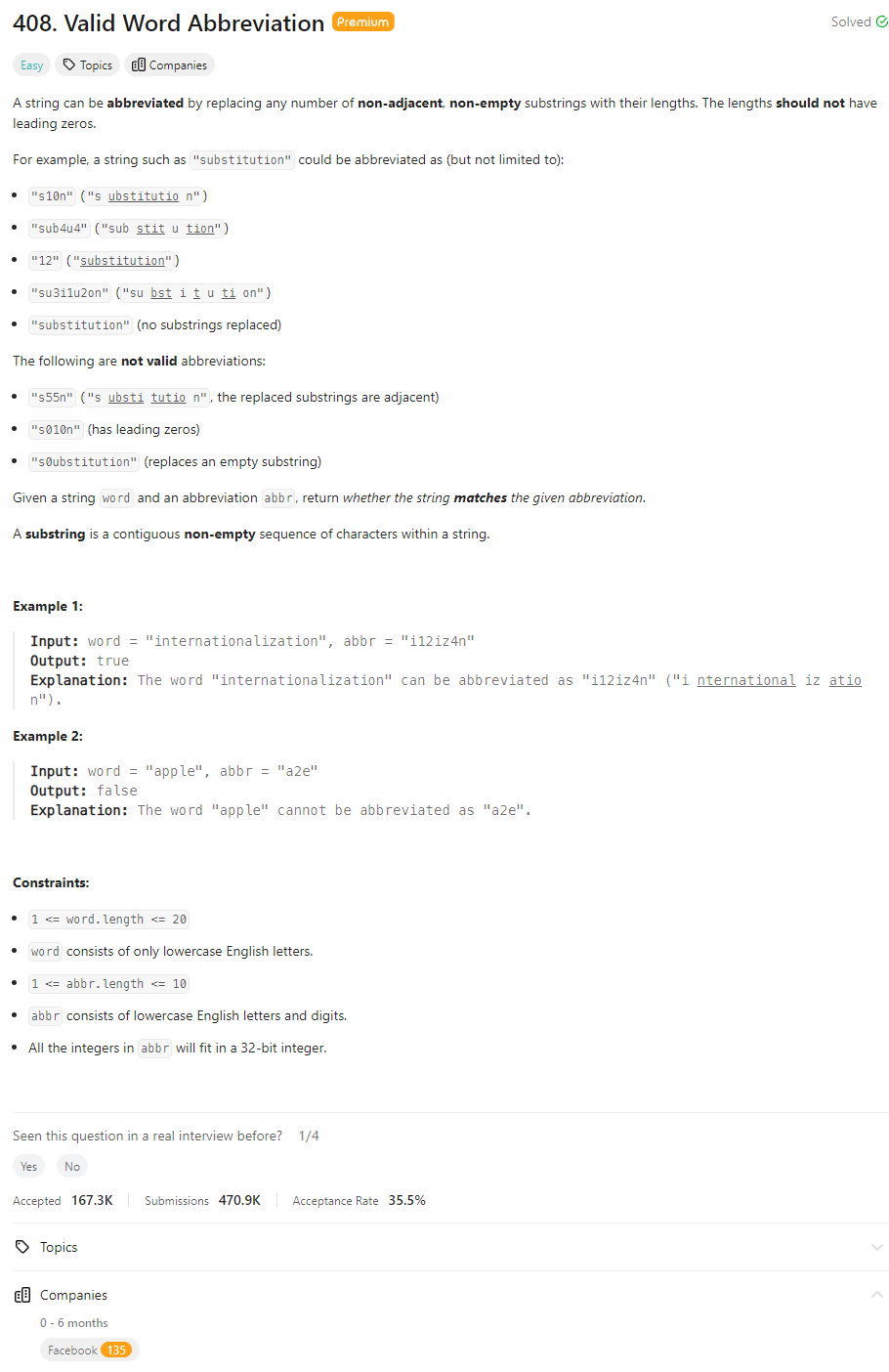Problem of The Day: Valid Word Abbreviation
Problem Statement
Intuition
I observed that the problem involves checking whether a given abbreviation is valid for a given word. The abbreviation can contain both letters and numbers, where numbers represent the count of consecutive letters to be skipped in the word.
Approach
I approached the problem by iterating through the abbreviation and constructing an array of substrings, each representing either a letter or a numeric count. Then, I iterated through this array, comparing each element with the corresponding part of the word and updating the position accordingly. Finally, I checked if the pointers reached the end of both the word and the abbreviation.
Complexity
-
Time complexity: O(n), where n is the length of the abbreviation.
-
Space complexity: O(n), as the array stores substrings extracted from the abbreviation.
Code
class Solution:
def validWordAbbreviation(self, word: str, abbr: str) -> bool:
arr = []
length_str = ""
for c in abbr:
if c.isalpha():
if len(length_str) > 0:
arr.append(length_str)
arr.append(c)
length_str = ""
else:
if length_str == "" and c == '0':
return False
length_str += c
if len(length_str) > 0:
arr.append(length_str)
start = 0
for elem in arr:
if elem.isalpha():
if start >= len(word) or elem != word[start]:
return False
start += 1
else:
skip = int(elem)
start += skip
if start > len(word):
return False
return start >= len(word)
Cleaner Code
class Solution:
def validWordAbbreviation(self, word: str, abbr: str) -> bool:
i, j = 0, 0
while i < len(word) and j < len(abbr):
num = 0
if word[i].isalpha() and abbr[j].isalpha():
if word[i] != abbr[j]:
return False
i += 1
j += 1
elif abbr[j] == '0':
return False
else:
while j < len(abbr) and abbr[j].isdigit():
num = num * 10 + int(abbr[j])
j += 1
i += num
return i == len(word) and j == len(abbr)
